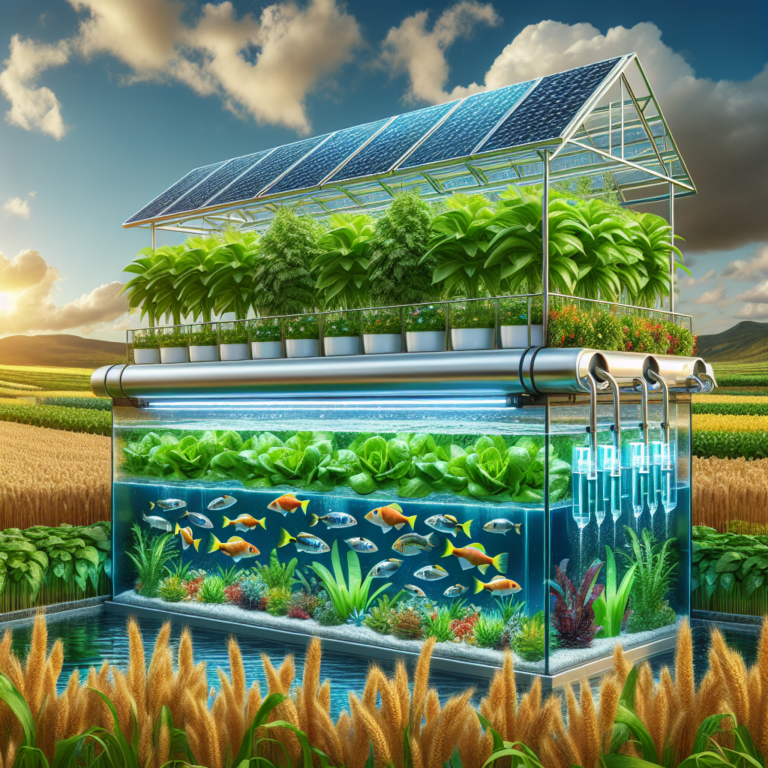Sustainable farming practices are becoming increasingly important as the global population continues to grow and the effects of climate change become more pronounced. One innovative solution that has gained popularity in recent years is aquaponics systems.
Aquaponics is a sustainable farming technique that combines aquaculture (the farming of fish) and hydroponics (growing plants in water) in a closed-loop system. In an aquaponics system, fish waste provides nutrients for plants, and the plants in turn filter the water for the fish. This symbiotic relationship allows both the fish and plants to thrive without the need for traditional soil-based farming methods.
One of the key advantages of aquaponics systems is their efficiency. By utilizing a closed-loop system, aquaponics requires significantly less water than traditional farming methods. Additionally, the use of fish waste as a natural fertilizer eliminates the need for chemical fertilizers, making aquaponics systems more environmentally friendly.
Aquaponics also offers the potential for increased food security and local food production. By growing both fish and plants in one system, aquaponics can provide a diverse range of nutrient-rich foods in a smaller space than traditional farming methods. This makes aquaponics a practical solution for urban farming and community gardens, where space may be limited.
As the demand for sustainable food production continues to grow, the future of aquaponics systems looks promising. Advancements in technology have made aquaponics systems more efficient and easier to manage, making them an attractive option for farmers looking to reduce their environmental impact.
In addition to their environmental benefits, aquaponics systems also offer economic opportunities for farmers. By growing both fish and plants together, farmers can diversify their products and potentially increase their revenue streams. Aquaponics systems can also be tailored to meet the specific needs of different crops and fish species, allowing farmers to experiment with different combinations to find the most profitable options.
Overall, aquaponics systems offer a sustainable and efficient solution to the challenges facing modern agriculture. With their potential to reduce water usage, eliminate chemical fertilizers, and increase food security, aquaponics systems are poised to play a significant role in the future of sustainable farming. As technology continues to improve and awareness of the benefits of aquaponics grows, we can expect to see an increase in the adoption of these systems on farms around the world.










